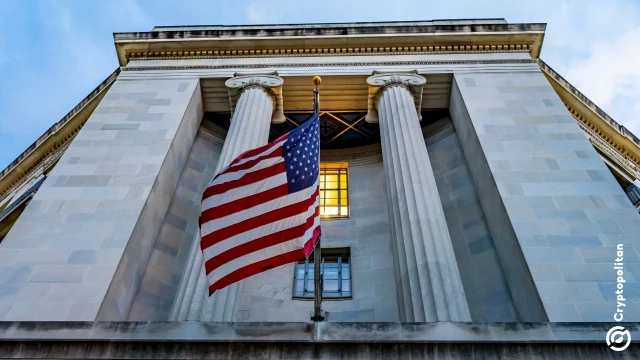
U.S. seizes additional crypto linked to North Korea's illegal network
Cryptopolitangeneral
The DOJ has convicted several individuals who helped the Democratic People's Republic of Korea to pocket large amounts of digital assets fraudulently.
📋 Article Summary
The U.S. Department of Justice's (DOJ) recent seizure of additional cryptocurrency linked to North Korea's illicit financial networks highlights the growing global battle against cybercrime and the need for enhanced regulatory oversight in the digital asset space.
This latest action follows a series of high-profile cases where the DOJ has worked to disrupt the Democratic People's Republic of Korea's (DPRK) efforts to exploit cryptocurrency platforms to fund its weapons programs and evade international sanctions. By seizing these ill-gotten digital funds, the U.S. government is sending a strong message that it will not tolerate the misuse of emerging technologies to finance rogue regimes and their malicious activities.
The DPRK has long been known to engage in sophisticated cyberattacks and hacking operations to steal cryptocurrency from exchanges and individual wallets. These stolen funds are then laundered through complex blockchain transactions and obfuscation techniques to conceal their origin and evade detection. Experts estimate that North Korea has amassed hundreds of millions of dollars' worth of digital assets through these illicit means, which it then leverages to bankroll its nuclear ambitions and other destabilizing actions.
The latest DOJ action underscores the growing role of cryptocurrency in the global geopolitical landscape. As digital assets become more widely adopted, they have also become a prime target for nation-state actors seeking to circumvent traditional financial systems and sanctions. This has prompted increased scrutiny and regulatory efforts from governments around the world, as they work to mitigate the risks posed by the misuse of cryptocurrencies.
For investors and the broader crypto ecosystem, these developments highlight the importance of robust security measures, compliance protocols, and close collaboration between industry players and law enforcement. Cryptocurrency exchanges and service providers must be vigilant in their efforts to detect and prevent the flow of illicit funds, while investors must exercise caution and conduct due diligence when engaging with digital asset platforms.
Looking ahead, the ongoing battle against cryptocurrency-enabled cybercrime is likely to intensify, as nation-states and criminal organizations continue to seek new ways to exploit the technology for nefarious purposes. This will likely lead to further regulatory crackdowns, enhanced compliance requirements, and the development of more sophisticated blockchain analytics and monitoring tools. Ultimately, the ability of the cryptocurrency industry to navigate this evolving landscape and maintain the trust of users and policymakers will be crucial in determining its long-term trajectory and integration into the global financial system.